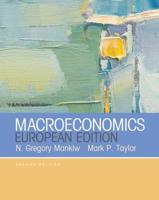Publisher's Synopsis
This 1999 book studies the implications of macroeconomic complementarities for aggregate behavior. The presentation is intended to introduce PhD students into this sub-field of macroeconomics and to serve as a reference for more advanced scholars. The initial sections of the book cover the basic framework of complementarities and provide a discussion of the experimental evidence on the outcome of coordination games. The subsequent sections of the book investigate applications of these ideas for macroeconomics. The topics Professor Cooper explores include: economies with production complementarities, search models, imperfectly competitive product markets, models of timing and delay and the role of government in resolving and creating coordination problems. The presentation goes into detail on a few models and uses them as a structure to integrate related literature. The discussion brings together theory and quantitative analysis.









